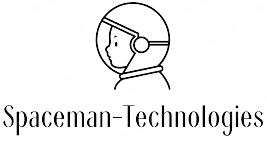This month’s question brought out both the poets and the engineers among respondents. The rapid pace of new technology adoption within organizations implies change for management and society, says HBS professor Jim Heskett. How does change affect the open sharing of information? (Forum now closed; next forum begins May 1.)
Summing Up
To remain sane and relevant, must we smell the flowers as well as the ozone? This month’s question of how much obsolescence business and society (and by implication, we as managers) can absorb brought out both the poets and the engineers among respondents. Most exhorted organizations and their leaders to recognize the importance and take advantage of advances in communications technology to remain relevant and competitive. J. W. Carpenter reported that “Our study … shows that … without the capacity to absorb [information] technology … [a] business has low value and poor survival potential.
My guess [is that] the societal effects are just as important.” Ganesh Ram commented, “We laugh at the Luddites who destroyed factories in the early Nineteenth Century but … the cost of obsolescence is more rapidly and mercilessly extracted in the always-connected, globally interlinked economy. Nothing is perfect but there is no time-out that we sometimes wish we could call.” At the same time, Tom Dolembo reminded us, “After many years in the digital race, I discovered it is just electrons and silicon, nothing else …. Before you ask about reality, put your hands into earth. Listen carefully to a friend over a cup of tea. I cannot imagine, now, a prosperity that will be based on smoke, mirrors, silicon, electrons, and tiny fingers.”
Many argued from the proposition that “it all depends.” As Todd Mounce put it, “First, an organization will only absorb as much communications technology as the culture, training, and mentality of the individuals working in the organization will allow … the organization should only absorb as much communications technology as is required to efficiently run [it] ….” Terry Leach said, “It depends on the existing organization communication patterns” [such as bottom up plus top down, outside in—from customers—plus inside out, etc.].
Challenges of new information technologies and how to deal with them were the focus of several comments. Deepak Alse said, “The key challenge is in ensuring that information moves where needed and not everywhere it can.” [This reflects a complaint I came across recently from a senior manager that a problem with the latest generation entering business ranks is that “everyone reports to everyone else everything they do all the time.”]
On a more personal level, C. J. Cullinane reported that “I work with keeping up with technology but … the newspapers and books are my anchor…. [They also leave] a good audit trail.” Phil Clark said, “Ultimately, when a person becomes overwhelmed they will simplify. That has its own danger. Our viewpoint will become more isolated and narrow.” Brenda Walker, who chided me for not supplying the Internet link to the David Brooks column that I referenced, suggested that “trusted sources of information filtering … will have increased value [regardless of the medium used].” Mark Chussil said, “…the individual takes on a greater burden to think critically and decide wisely …. When I feel myself drowning in data (or in fear of the lack of data), [I return to the question], What’s the problem?”
Will Harwood and Michael Norman posed what for them are more interesting questions that we might consider. In Harwood’s words, “How do we measure the quality of the information we receive? What makes information worth acting upon? When is information certain enough?” And Norman asked, “What will be the roles of managers as we know them today …? What skills, knowledge, attitudes and experience will free them from the past and help them become successful … leaders in ever-evolving tech-contributor spheres?” What do you think?
